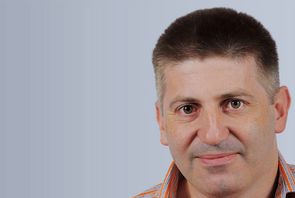Modern hyperspectral imaging combined with the latest AI methods in the circular economy will be used to develop and test efficient sorting and classification of scrap. In addition to the imaging in the newly established hyperspectral laboratory at the DIGITAL Institute, potential solutions are also tested directly at industrial partners.
Together with the K1-MET, the Know-Center and the Institute of Computer Graphics and Vision of the Graz University of Technology under the direction of the DIGITAL Institute of JOANNEUM RESEARCH, new methods for the spectroscopic detection of impurities and the assessment of (steel) scrap quality are being researched. Subsequently, the aim is to automatically sort out identified critical raw materials in the production process and to optimize the scrap composition with regard to the specifications for the required steel quality. This is because steel scrap is needed as an important secondary raw material in steel production. The use of scrap as a raw material in crude steel production is not only advantageous in terms of resource conservation, but also potentially reduces CO2 emissions. Steel from scrap production is up to 75% less CO2-intensive than steel from primary raw materials and comes with other environmental benefits.
In this context, precise knowledge of scrap quality is essential for efficient scrap utilization, as scrap sorting must be matched to the respective process requirements. The quality of the scrap delivered to the steel mill often varies greatly, and impurities or by-elements influence the steelmaking process and thus also the production costs (higher scrap pretreatment costs and higher demand for additives in the steelmaking process to remove by-elements).
At one of our partner plants - the Marienhütte Graz steel mill - there was a successful kick-off meeting in April. Our experts Harald Ganster, Malte Philip Jaschik and Gerhard Jakob and other project partners* were able to take a close look at real production conditions during a tour of the steelmaking and rolling mill.
The project InSpecScrap -Intelligent Multispectral Characterization for Material Analysis on Scrap Yards - is a funded project from the Zukunftsfonds, which is financed by the province of Styria.
You want to learn more about the topic of circular economy at the DIGITAL Institute - take a look:
If you have any questions, please do not hesitate to contact our experts:


